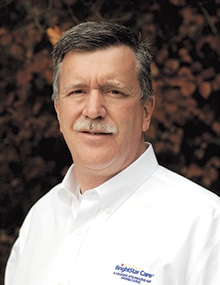
The examples are many and varied, and I give you but a couple. Someone dying without a will dies intestate. That means the state decides who gets what of your possessions. Maybe that’s not a big deal, but maybe you want that special relative to have a piece of jewelry that has real meaning to you and them. Can you say with certainty that will happen if you haven’t taken steps to create a legal, valid will? A will is a legal document by which the creator, the testator, makes known how they wish their property to be disposed of at their death. A will also names an executor, which is the title given to the person charged with making sure directions of the will are followed. A will also names guardians of any minor children. That last piece is especially important, maybe not so much for the elderly, but for families with young children, its importance cannot be overemphasized. Do you want to say who will raise your children if something should happen to you or do you want the state to decide? The state may not necessarily make the wrong decision, but especially if there is dysfunction in your family (Let’s be real, whose family does not have dysfunction?), you probably want to say who you want raising your children.
Although a will is always the first and most obvious legal document to have in place, there are several others just as necessary. Since none of us like to think about dying or even being sick and since many will not create a legal will, the additional documents are even less common even if just as necessary. After a will, probably the next most important document you will want to create is Advance Directives. Advance Directives allows you to appoint someone to make health care decisions for you if you are not able to do so yourself. If, for example, you are too sick to communicate your wishes. Advance Directives have four parts:
1) Health Care Agent – this allows you to appoint that person to make health care decisions if you cannot do so yourself.
2) Treatment Preferences – This allows you to make your treatment preferences known, a VERY personal matter if you have a terminal condition or are unable to communicate your treatment preferences. For example, if a feeding tube were necessary to sustain your life, would you want a feeding tube or would you not want that done? By creating Advance Directives, you make that decision, not anyone else.
3) Guardianship – This allows you to appoint someone as guardian should one ever be necessary.
4) Effectiveness and Signatures – This is just what it sounds like and is required to make the document legal.
Another document you may want to consider is a DNR. A “Do Not Resuscitate” order. This instructs health care professionals that should cardiopulmonary resuscitation, CPR, be required to restart your heart, you do not want that done. This is a document that must be signed by a doctor. I have clients that do not have DNR’s but do not want CPR if their heart stops. You need to know that most health care professionals will do CPR unless as valid DNR is in place.
Obviously, this is a complicated topic that cannot be adequately covered in a 650-word newspaper article. If interested, I encourage you to seek legal advice from an elder law attorney who specializes in these issues. If you need help finding an elder law attorney or have any other questions, please call me, Tim Golden – The Senior Care Expert.
Tim Golden is the owner of BrightStar Care, Lawrenceville. You can reach Tim at (404)281-1537 or by emailing asktheseniorcareexpert@gmail.com. For more information please visit http://www.brightstarcare.com/lawrenceville/
Tim Golden
BrightStar Care
(404)281-1537
PO Box 634
Lawrenceville, GA 30046
email: asktheseniorcareexpert@gmail.com

